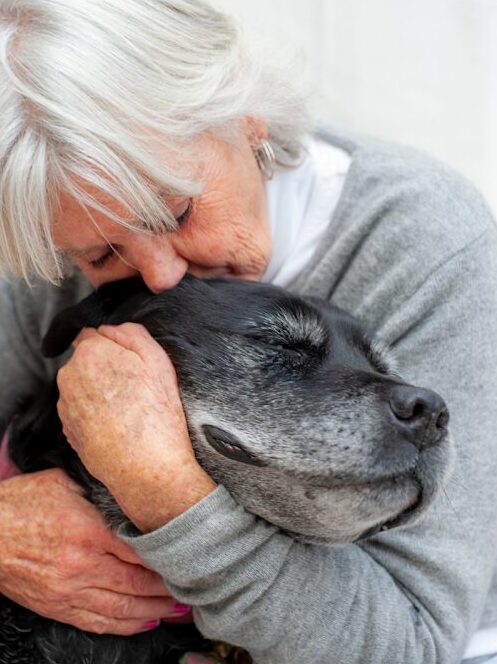Those of us who love animals know that having a companion animal express its affection for us is one of the greatest gifts a person can receive. Yet all too often senior animals are placed in shelters because of their human’s death, illness, or other inescapable circumstances. Their chances of adoption from such facilities are far from certain, even though many of them make ideal pets, especially for the elderly.
These older animals are usually spayed/neutered, less destructive, and more relaxed than their younger counterparts. They have been house-broken and trained but are still open to learning. Besides finding themselves in strange surroundings, they suffer from the loss of their former companions.
Loneliness and isolation are two of the greatest health threats among elderly humans. Studies show that animal companionship improves both their physical and mental health, decreasing their stress levels, blood pressure, depression, and even dementia.

Both humans and animals benefit from companionship. The older pet, though more relaxed and calmer than a young dog or cat, still craves some exercise and play. This in turn gives the older human the benefit of receiving and providing love while keeping physically active and responsible.
Both human and pet may have health concerns that need to be addressed. Mobility, hearing, sight, and continence issues are common. The truly elderly are likely to have more serious health problems. Housebound seniors welcome the warm comfort an animal can provide, yet need to be in a situation where care is regularly overseen. Those responsible for their care need to be aware of the health and financial resources, such as food and medicines, available to both. And they need to ensure the future care of any senior animal outliving its senior human.
